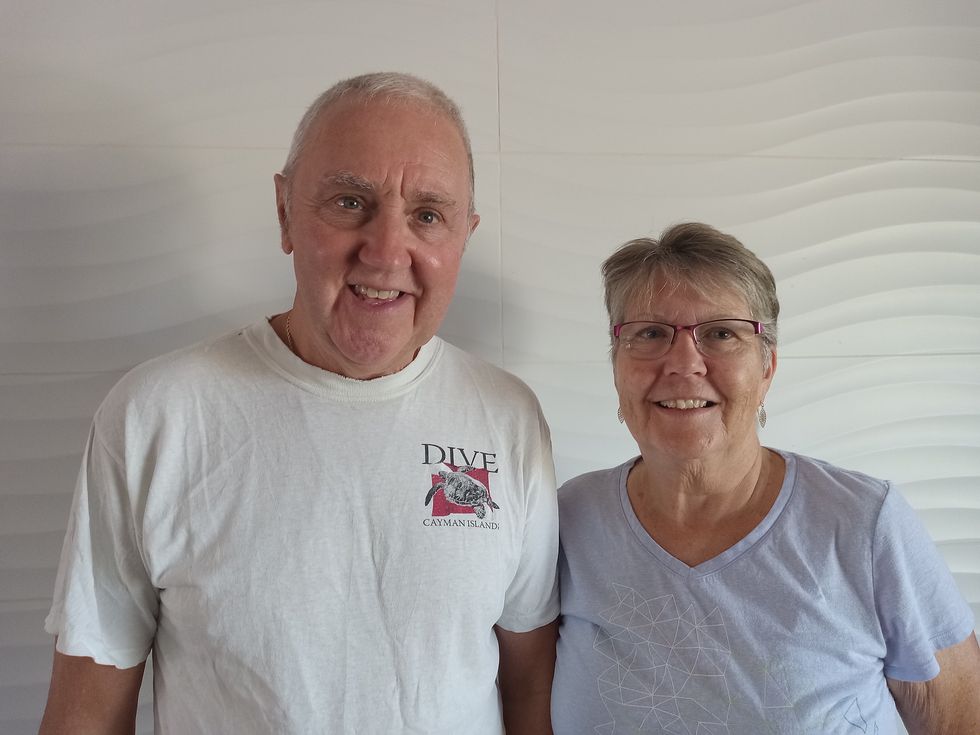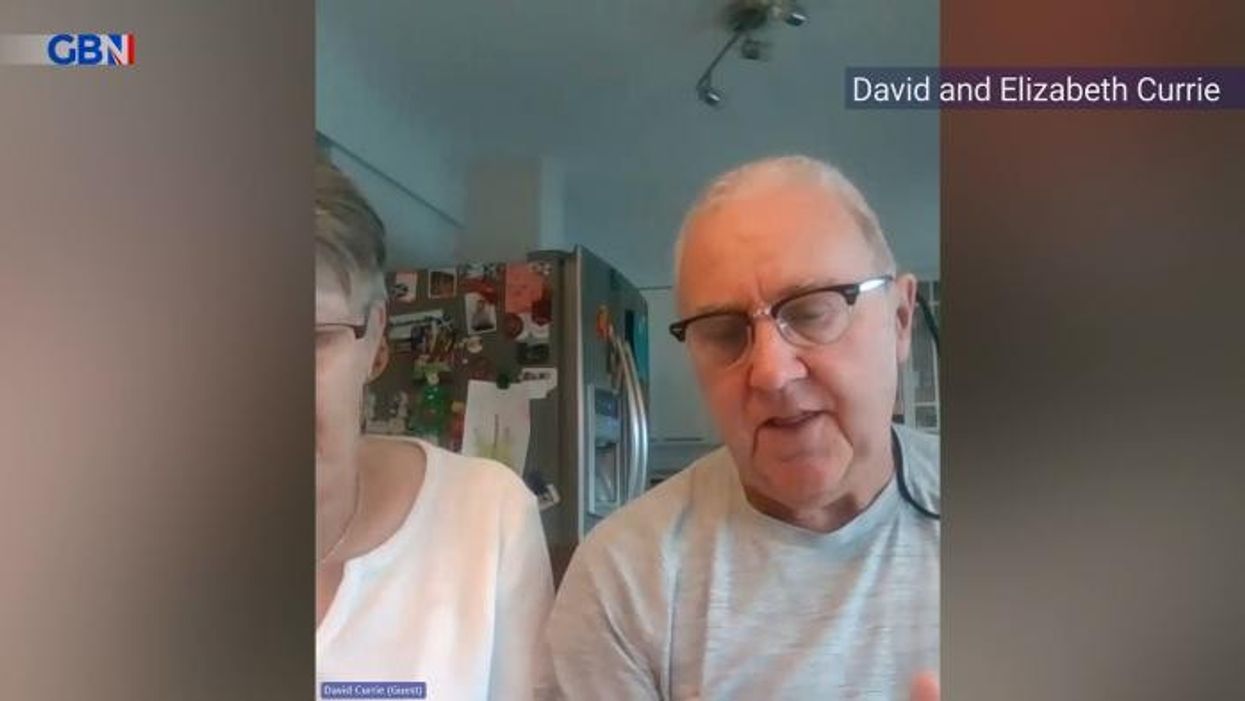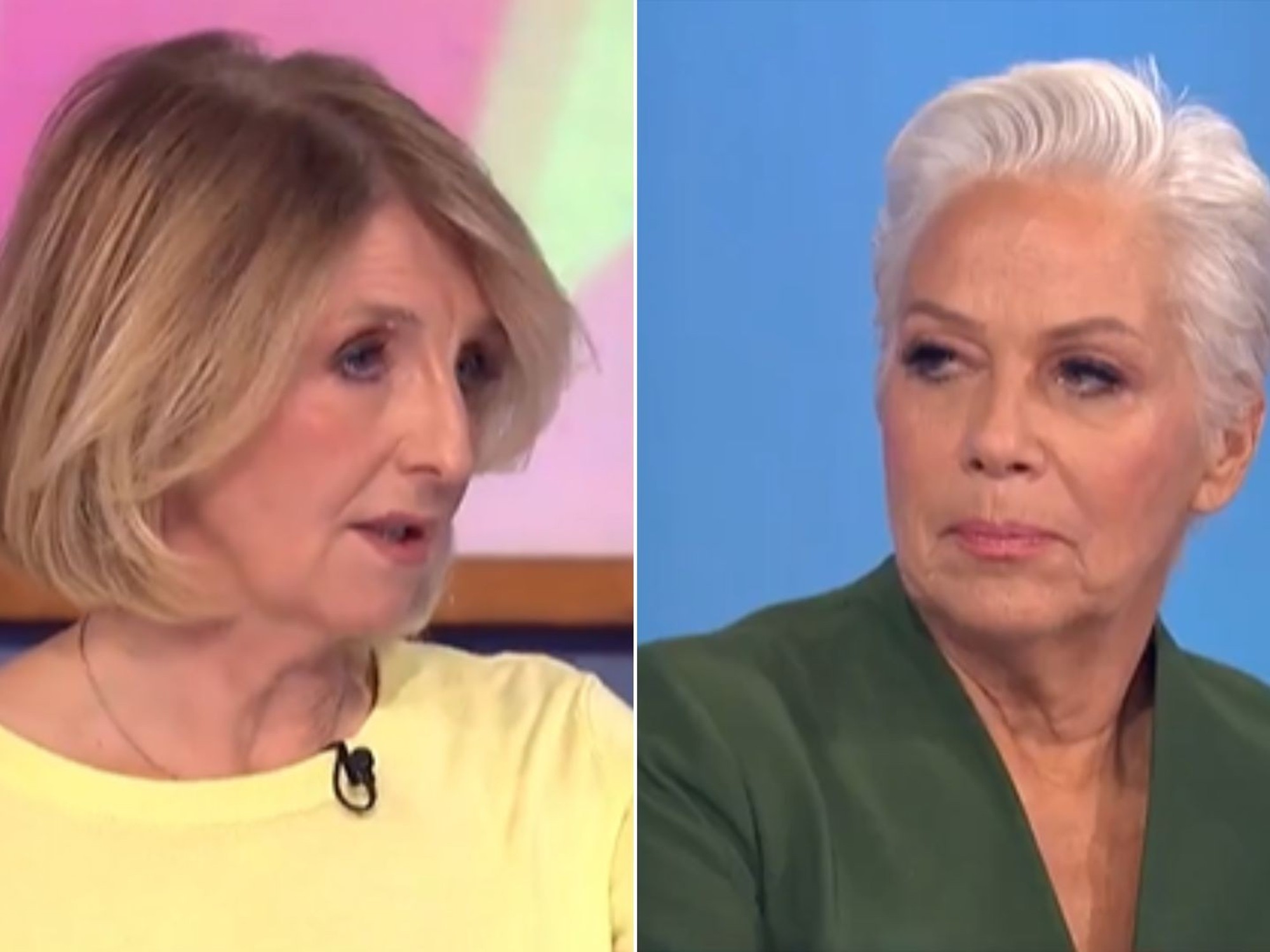‘Forgotten’ pensioners devastated to find state pension frozen because of where they live
Half a million pensioners are estimated to miss out on an uprated UK state pension due to where they live.
Don't Miss
Most Read
Trending on GB News
A pensioner couple who paid thousands of pounds to fill gaps in their National Insurance record for a nearly full state pension have been left devastated to find out their UK state pension is frozen.
David and Elizabeth Currie, both 69, said they feel “forgotten” by the UK government. The couple are among an estimated 500,000 pensioners who don’t get the annual state pension increase because of the country they live in.
Despite having 33 qualifying years on her National Insurance record, Elizabeth has got £143 a week since claiming her state pension at 66 in May 2020. David, who has 32 qualifying years, has got £140 a week since he could claim his sum at 65 and a half in March 2019. They estimate Elizabeth is missing out on about £1,500 a year and David is missing out on £2,000 a year.
The couple and their two children moved to Vancouver in Canada in 1988, when they were in their mid-30s, and claim the Department for Work and Pensions (DWP) never informed them that their state pension would be frozen.

David and Elizabeth Currie are unable to get an annual state pension increase
DAVID AND ELIZABETH CURRIE
Mr Currie told GB News: “It’s awful. It is as if we’re second-class citizens.”
The couple and their two children moved to Vancouver in Canada in 1988 when they were in their mid-30s.
Mr Currie said: “When we left the UK, there were no indicators from the government to say, ‘By the way, you’re moving to a country where your pension is going to be frozen.’”
The couple says they only realised their state pension would be frozen when they connected with the Canadian Alliance of British Pensioners in their 40s, after paying thousands of pounds to boost their state pension.
They began to think about their retirement income around 10 years after emigrating in their mid-40s and contacted the UK government for a state pension assessment.
The pair were told how many qualifying years they had accrued while working in the UK, and how much state pension they would therefore be entitled to.
At that point, the Department for Work and Pensions (DWP) told them they could make voluntary National Insurance contributions for the years they’d missed, which would enable them to collect the full state pension.
Mr Currie had 15 years of qualifying years, meaning he would only get a fraction of the full amount when he reached state pension age.
Do you have a story or query for the GB News money team? Get in touch by emailing money@gbnews.com.
The couple decided to fill in the gaps in their National Insurance record by making voluntary contributions.
Mr Currie said: “At the time when we started back paying our pension, you needed to have 45 years to get a full pension.”
For the couple’s circumstances, the number of qualifying years they needed changed to 30, and it is now 35.
Between 1995 and around 2005, the couple paid thousands of pounds to cover missed years of National Insurance payments, costing them between £600 to £800 per year per person.
Having paid nearly 20 years of voluntary National Insurance contributions, the couple have worked out they will need to live to 73 to break even and then benefit from the back payments.
It was around that time that the couple heard about the Canadian Alliance of British Pensioners, through whom they got in touch with an accountant from the UK, and they realised their state pension wouldn’t rise annually as it does in the UK and other qualifying countries.
The couple is visiting the UK later this year and have been told that if they tell the DWP they will visit countries where the state pension is uprated, their state pension will be increased to the current amount for that period.
When the couple returns to Canada after their trip, though, the payment will revert to the fixed amount they got when they started claiming the state pension.
Mr Currie said: “I don’t know how labour intensive that is for the individuals that work at the DWP, but it’s ludicrous.”
Living overseas, they’re struggling to get in touch with members of parliament to raise the issue.
Mr Currie said: “We recognise that there are big issues that the government deals with, but this is a wrong that’s gone on and consistently has gone on for 70 years.
LATEST DEVELOPMENTS:

David and Elizabeth Currie moved to Canada in 1988
GB NEWS
Mrs Currie said: “It’d be different if nobody who lives out of Britain got it. But if you live in Europe or the US, you would get it. It’s just absurd.
“They take your money – we’ve paid in for almost every year, so why shouldn’t we get the increases as well?”
The state pension only increases if the person living outside of the UK lives in certain countries. These are the European Economic Area (EEA), Gibraltar, Switzerland and countries with a social security agreement with the UK (but people cannot get increases in Canada or New Zealand).
Mr Currie claimed: “Canada doesn’t have a reciprocal agreement with Britain. The interesting thing is that last year Canada was in new discussions with the UK on trade deals and they raised the issue with the UK negotiators to sign a reciprocal agreement, so we could get our pension uprated and the UK government refused.”
The couple lives just 10 miles away from the US, where the state pension is uprated by the full amount each year.
Mrs Currie said: “It’s very frustrating, it’s awful. It’s the fact some people get it and we don’t, is very annoying.”
The couple have sent hundreds of emails to British MPs but are struggling to speak to them due to not living in their constituency.
A Government spokesperson said: “Our priority is ensuring every pensioner receives the financial support to which they are entitled.
“We understand that people move abroad for many reasons and we provide clear information about how this can impact on their finances.
“The Government’s policy on the uprating of the UK state pension for recipients living overseas is a longstanding one of more than 70 years and we continue to uprate state pensions overseas where there is a legal requirement to do so.”









